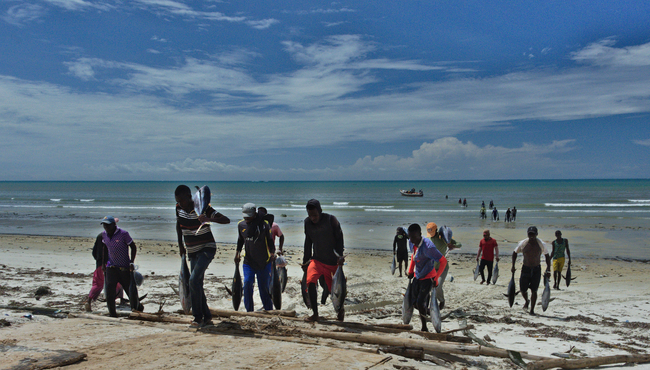Project context
Eastern African coasts, like any other tropical coastal region in the world, are characterised by rapid social and environmental changes, leading to threats to biodiversity, ecosystem functions and services. Coastal resources are intensively used, and provide livelihood for millions of people. Despite various efforts and some successes in marine resource management and biodiversity conservation over the past two decades, the status of biological resources and the rate of ecosystem change, however, often remain unclear, due to limited reliable information. Government and donor-funded conservation and fisheries management projects in the past decade provided a substantial amount of data. However, the information are not always routinely archived in a way that makes them easily retrievable. Thus, further processing of data in terms of structuring and systematic evaluation in order to detect and interpret reliable long-term trends remains limited.
This partnership project implemented by ZMT in cooperation with the Institute of Marine Sciences at the University of Dar es Salam (IMS) aims to support the use of new and innovative digital technologies for policy-making in marine resource management in Eastern Africa. A focus of the project is on integrating marine biodiversity data and raising the awareness and capacities for exchange of data building on the existing experiences.
Thereby, the project will gather stakeholders involved in marine biodiversity data handling to a networking group, compile the most relevant data bases and assess the experience in sustainable data handling and sharing. Furthermore, the project will evaluate how new and innovative digital technologies can contribute to advanced integration of data from different sources and their overarching analysis. Resulting from this partnership project, actors in the region will have an overview on experiences and lessons learned in applying new data technologies in East Africa and beyond. Capacities for data handling are strengthened and proposals for initiatives to implement new data technologies are developed. Policy suggestions will be derived from the knowledge gained in the project.
Project Partner |
|---|
| Institute of Marine Sciences – University of Dar es Salaam, Tansania |





